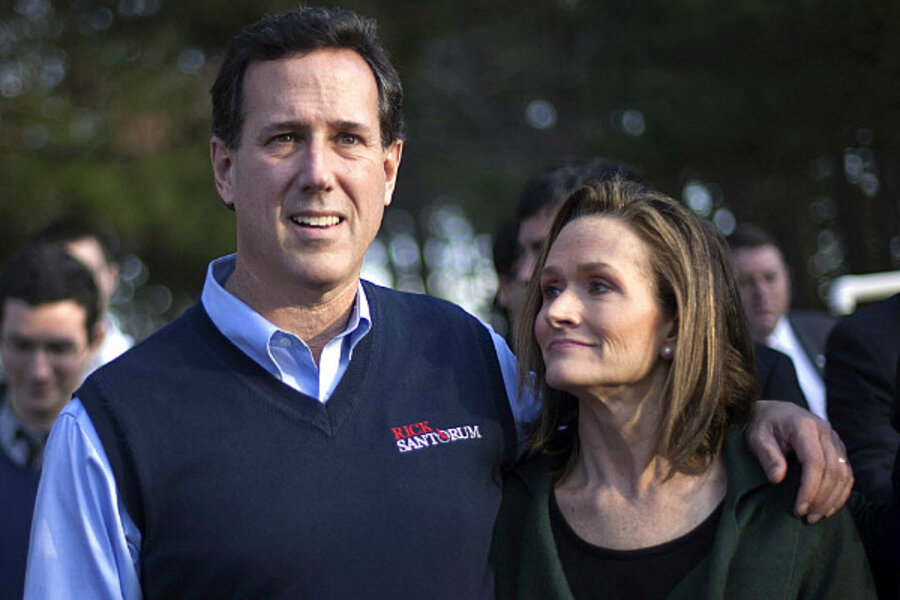In 2005, Santorum’s book, “It Takes a Family,” asserted that “radical feminists” are undermining families by convincing women they should work outside the home.
“Sadly the propaganda campaign launched in the 1960s has taken root,” the book says. “The radical feminists succeeded in undermining the traditional family and convincing women that professional accomplishments are the key to happiness.”
When asked about the passage on ABC’s “This Week” Feb. 12, Santorum said he was unfamiliar with it, and that his wife, Karen, had written that part of the book. But then he added that when his wife quit her job to take care of their children, she felt people looked down at her.
“I think it's important that women, both outside the home and inside the home, are affirmed for their choices they make,” Santorum said on the show. “That they are, in fact, choices, and society, you know, treats them, in a sense, equally for whatever decision they make that's best for them.”
In a separate interview Feb. 12, on NBC’s “Meet the Press,” Santorum was asked if women with children need not apply to work in his administration, if he’s elected president.
“There will be plenty of working moms who will be in our administration,” he said.







